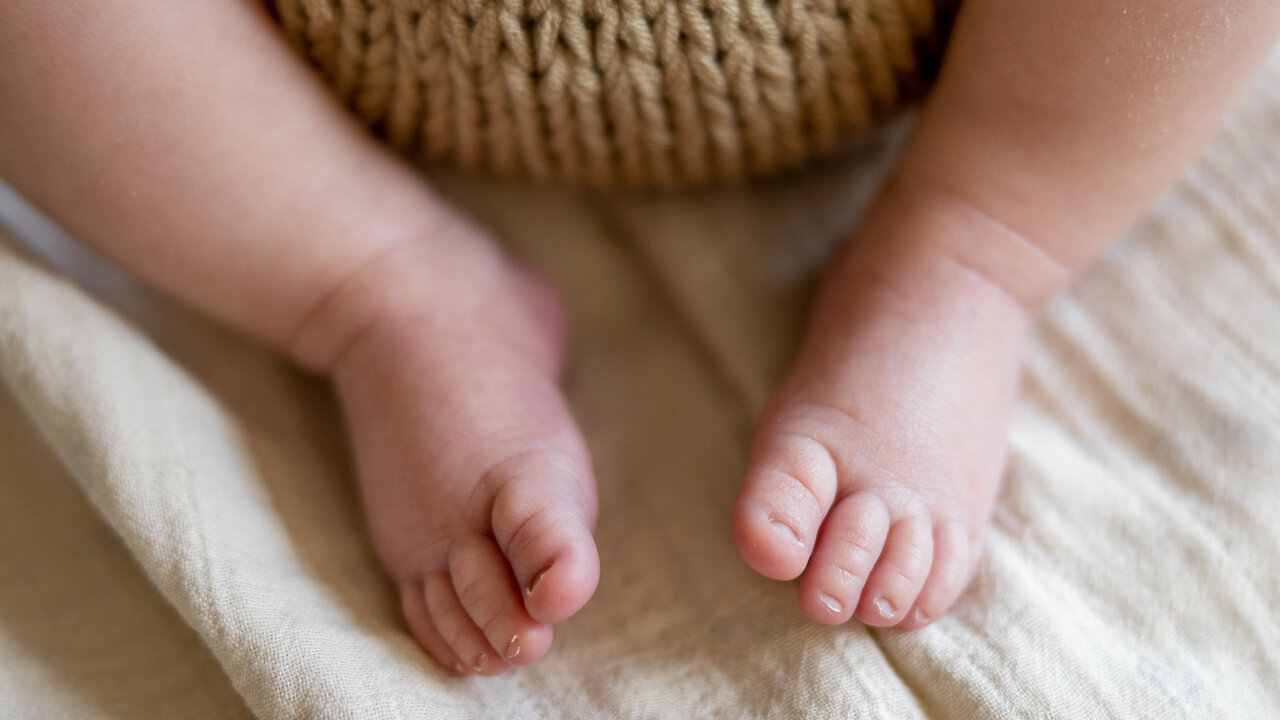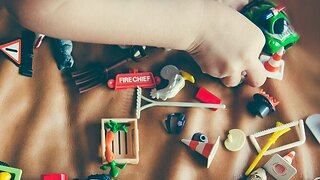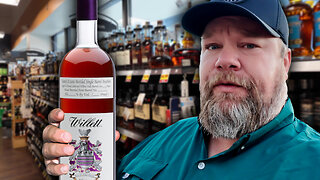Premium Only Content

Pre-baby preparations? Top things parents do to get ready for a baby
How early should you have everything ready to go before the baby arrives?
According to a new survey of 2,000 American parents with kids aged five and under, everything should be ready to go five weeks before the baby is due.
Parents’ top checklist items, pre-baby, were having the hospital bag packed (82%), setting up the baby’s nursery/sleep space (75%) and stocking the home with everyday essentials, like toilet paper and laundry detergent (74%).
Conducted by Talker Research in partnership with Safety 1st for Baby Safety Awareness Month in September, the study found that safely baby-proofing the home was also a top priority during the third trimester (43%).
Uncovering the amount of time parents spent doing baby and home safety research, results found that parents spent eight hours researching before the baby arrived and seven hours after, on average.
Investigating what sources of information are most helpful, parents said they relied on advice from friends and family (61%), medical and expert publications (43%) and tips and advice from trusted brands (38%) rather than relying on influencers (24%) and blogs (16%) for baby safety information.
Parents said safety (64%) was the top priority when setting up the baby’s nursery/sleep space compared to functionality (28%) and appearance (6%).
Results also revealed that nearly half (48%) of moms who carried their babies stopped driving close to their due date.
The top reasons were fear that their water would break while driving (43%) and concerns about being an unsafe driver due to body changes, like being unable to reach the brake pedal (41%).
During the first few weeks after the baby came, parents reported they would jolt awake four times per night, on average, because they were worried about the baby.
Parents also reported they typically only got four hours of sleep per night, on average, in the first three months postpartum.
Looking into home safety specifics, the survey also asked parents about home safety best practices and found a few knowledge gaps.
A third (33%) of those surveyed reported that their baby has had a safety scare at home. Instances included the baby putting a pin in a socket, getting ahold of nail glue and gluing their eyes shut and even finding a lighter and trying to turn it on.
After the safety scare, 47% admitted they needed to baby-proof their homes more thoroughly.
Along with that, almost half of parents surveyed (47%) use technology, like smart monitors and apps, nearly every day to monitor their children and make sure they’re safe. “We understand that preparing for a new baby can be a daunting and oftentimes overwhelming task. This research shows that prioritizing safety begins well before a little one arrives,” said Alisa McCoy, Safety 1st vice president, brand and creative.
“From baby-proofing the home to carefully selecting trusted sources of information, parents are taking every measure to ensure their baby’s well-being. We’re proud to be part of that journey, and it’s important to us that parents feel more confident as they navigate every first and every moment after.”
The survey split respondents by parenting style to see how habits and priorities differ and found a few interesting takeaways.
Of the parents surveyed, 44% labeled themselves as authoritative parents who connect and communicate with their children using rules and positive discipline.
Thirty-three percent said they’re gentle parents who connect through empathy and compassion. These parents were most likely to prioritize safety when setting up the baby’s nursery.
Eight percent identified as free-range parents who allow their children to learn about the world with minimal supervision, so they learn independence. This group spent the most time researching home and baby safety best practices pre-baby (10 hours) and after the baby came (eight hours).
Interestingly, free-range moms were also the most likely to stop driving leading up to their due date.
“This research underscores the universal priority parents place on their baby’s safety, no matter their parenting style,” said McCoy. “September being Baby Safety Awareness Month serves as a reminder to parents everywhere that ensuring a safe environment is critical. We are dedicated to changing "no zones" into "go zones" and helping parents feel prepared, seen, and supported. ”
Survey methodology:
Talker Research surveyed 2,000 American mothers with a child age 5 or under; the survey was commissioned by Safety 1st and administered and conducted online by Talker Research between Aug. 30 and Sept. 9, 2024.
We are sourcing from a non-probability frame and the two main sources we use are:
● Traditional online access panels — where respondents opt-in to take part in online market research for an incentive
● Programmatic — where respondents are online and are given the option to take part in a survey to receive a virtual incentive usually related to the online activity they are engaging in
Those who did not fit the specified sample were terminated from the survey. As the survey is fielded, dynamic online sampling is used, adjusting targeting to achieve the quotas specified as part of the sampling plan.
Regardless of which sources a respondent came from, they were directed to an Online Survey, where the survey was conducted in English; a link to the questionnaire can be shared upon request. Respondents were awarded points for completing the survey. These points have a small cash-equivalent monetary value.
Cells are only reported on for analysis if they have a minimum of 80 respondents, and statistical significance is calculated at the 95% level. Data is not weighted, but quotas and other parameters are put in place to reach the desired sample.
Interviews are excluded from the final analysis if they failed quality-checking measures. This includes:
● Speeders: Respondents who complete the survey in a time that is quicker than one-third of the median length of interview are disqualified as speeders
● Open ends: All verbatim responses (full open-ended questions as well as other please specify options) are checked for inappropriate or irrelevant text
● Bots: Captcha is enabled on surveys, which allows the research team to identify and disqualify bots
● Duplicates: Survey software has “deduping” based on digital fingerprinting, which ensures nobody is allowed to take the survey more than once
It is worth noting that this survey was only available to individuals with internet access, and the results may not be generalizable to those without internet access.
-
 0:59
0:59
SWNS
2 days agoParents reveal why they want their kids to play with toys
261 -
 2:08:19
2:08:19
Tactical Advisor
14 hours agoThe Vault Room Podcast 006 | Farwell 2024 New Plans for 2025
173K11 -
 34:12
34:12
inspirePlay
1 day ago $5.09 earned🏆 The Grid Championship 2024 – Cass Meyer vs. Kelly Rudney | Epic Battle for Long Drive Glory!
75.9K8 -
 17:50
17:50
BlackDiamondGunsandGear
12 hours ago $1.91 earnedTeach Me How to Build an AR-15
50.7K6 -
 9:11
9:11
Space Ice
1 day agoFatman - Greatest Santa Claus Fighting Hitmen Movie Of Mel Gibson's Career - Best Movie Ever
110K46 -
 42:38
42:38
Brewzle
1 day agoI Spent Too Much Money Bourbon Hunting In Kentucky
74K12 -
 1:15:30
1:15:30
World Nomac
21 hours agoMY FIRST DAY BACK in Manila Philippines 🇵🇭
57K9 -
 13:19
13:19
Dr David Jockers
1 day ago $10.86 earned5 Dangerous Food Ingredients That Drive Inflammation
76.5K17 -
 1:05:13
1:05:13
FamilyFriendlyGaming
1 day ago $15.76 earnedCat Quest III Episode 8
129K3 -
 10:39
10:39
Cooking with Gruel
2 days agoMastering a Succulent London Broil
82.8K5